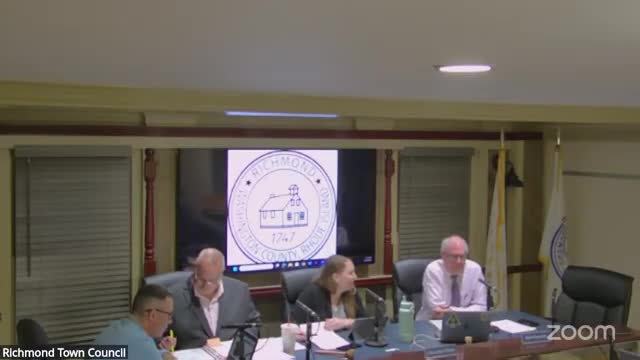Council rejects several proposed zoning prohibitions and continues special-use criteria work to November 21
Get AI-powered insights, summaries, and transcripts
Subscribe
Summary
After a multi-hour public hearing, the council voted to reject many of the planning board’s proposed prohibitions in Zoning Ordinance chapter 18.16 and continued the section on specific criteria for uses permitted by special use permit to Nov. 21 for additional work and input from staff and commissions.
Richmond Town Council members declined to adopt a set of proposed changes to the zoning ordinance’s table of uses and sent part of the update back for more work, saying many recommendations lacked objective criteria or sufficient justification.
The council opened a lengthy public hearing on amendments to Zoning Ordinance chapter 18.16 and heard from residents, the planning board and the economic development director. After public comment and council discussion, members voted to reject a long list of items that the planning board had recommended be made “not permitted” in several zones — including proposals affecting child and adult day care, private trade/technical schools and several gathering-place uses — arguing that prohibiting those uses without specific criteria could unintentionally make them automatically permitted under state law.
The council approved removing a duplicative accessory-uses section and voted to continue the complex new section (18.16.0.04) establishing specific and objective criteria for uses permitted by special use permit until Nov. 21. Staff said continued work will allow planning and economic development staff to prepare clearer, criteria-based recommendations and, where needed, solicit additional input from the Economic Development Commission and planning board before returning to the council. Council members repeatedly asked for explicit rationales for acreage minimums, parking formulas, noise and lighting requirements and for consistency when the Aquifer Protection Overlay District (APOD) imposes additional conditions.
Council members emphasized the need to avoid unintended consequences — for example, a use removed from the table without criteria could become permitted by default — and directed staff to prepare unified, specific criteria where the planning board seeks the ability to limit uses.
